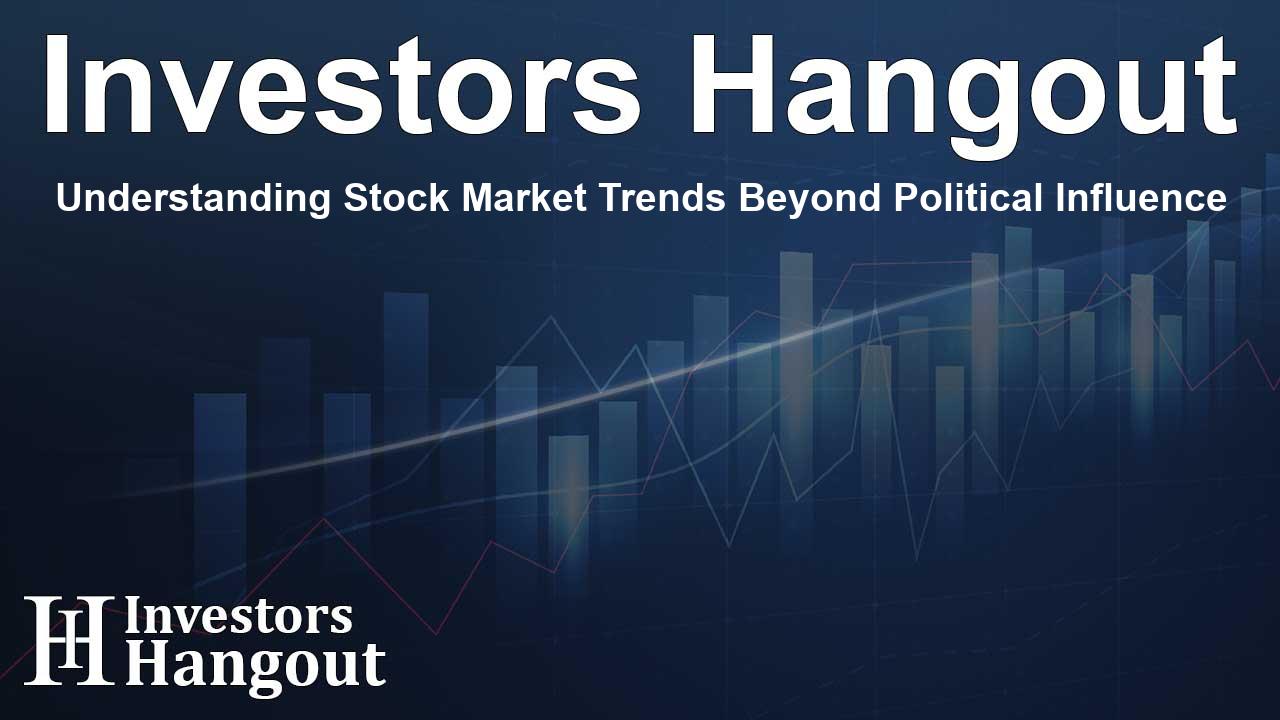Understanding Stock Market Trends Beyond Political Influence

Stock Market Trends and Political Elections
The relationship between the stock market and politics often raises questions about market behavior during election seasons. Recently, in discussions surrounding political forecasts, it was suggested that a change in presidency might lead to an economic downturn. However, the truth behind stock market dynamics often reveals a different story.
The Market's Reaction: Historical Context
Reflecting on past trends, we'll recall the prediction made during the 2016 presidential election. Many believed a Trump victory would lead to an immediate market crash, yet the opposite occurred. I confidently anticipated a rise to 2600 in the SPX index at that time, which eventually saw the market soar high above this level, peaking around 2880.
Understanding Market Drivers
It's essential to understand that the stock market operates independently of political outcomes. Historical evidence suggests that external factors, including major political events, have a surprisingly minimal impact on market movements. Studies like "What Moves Stock Prices" conducted in the late '80s found that macroeconomic news accounted for just 20% of stock price changes. In fact, many of the most significant market shifts happened without any major news developments.
Greenspan's Perspective on Market Forces
During a 2007 interview, Alan Greenspan highlighted that the upcoming presidential election wouldn't profoundly affect market dynamics. He argued that the market is fundamentally governed by forces beyond political control. This view aligns with the findings that traders often react not to isolated news events but to broader market sentiments.
The Role of Behavioral Economics
Investigations have led us to understanding how human psychology influences financial markets. Research indicates that a large part of market behavior can be attributed to emotional responses rather than rational decisions. This effect resembles biological behaviors seen in nature, where collective phenomena drive outcomes. The animal spirits, as Greenspan described them, embody the inherent nature of human behavior that leads to market movements.
Ralph Nelson Elliott and Market Predictions
Ralph Nelson Elliott’s work revolutionized how we comprehend financial markets. He identified repetitive natural patterns in market movements, known as fractals. Elliott's findings suggest that market trends reflect collective human emotions and sentiments rather than external events. He posited that markets oscillate in a primary trend consisting of five waves, with counter-trends following three waves, representing the cycle of human sentiment.
Looking Ahead: Market Sentiment
This cyclical behavior leads us to expect that we may soon witness a prolonged bear market, regardless of political control. Current societal sentiments seem to indicate that a downturn may be imminent as we appear to be in the latter stages of a multi-decade bull market. The anticipated transition could well be likened to a “Great-er Depression” given the scale and duration of potential market corrections.
Informed Analysis Over Political Predictions
Our market analysis methodology diverges from relying on the political landscape. Instead, it harnesses mathematical patterns observed in market behavior historically. For instance, previous forecasts regarding market tops and significant corrections were all made without considering political factors, demonstrating a more reliable method of tracking market trends.
Frequently Asked Questions
1. How do political elections affect stock market performance?
Political elections can create uncertainty, but historical evidence suggests that market movements are often driven by broader social sentiments rather than specific political outcomes.
2. What role does human psychology play in market movements?
Human psychology significantly impacts market behavior, often leading to irrational decision-making and collective movements based on emotional responses.
3. Can the stock market predict economic downturns?
While some market movements may signal shifts in economic conditions, predicting downturns based solely on current events or political changes proves to be unreliable.
4. What is the Elliott Wave Theory?
The Elliott Wave Theory proposes that markets move in predictable patterns, reflecting public sentiment cycles, which can be analyzed to predict future market movements.
5. What can investors do to navigate market changes?
Investors should focus on long-term trends, employing informed analysis methods that consider market sentiment rather than short-term political changes or news events.
About The Author
Contact Thomas Cooper privately here. Or send an email with ATTN: Thomas Cooper as the subject to contact@investorshangout.com.
About Investors Hangout
Investors Hangout is a leading online stock forum for financial discussion and learning, offering a wide range of free tools and resources. It draws in traders of all levels, who exchange market knowledge, investigate trading tactics, and keep an eye on industry developments in real time. Featuring financial articles, stock message boards, quotes, charts, company profiles, and live news updates. Through cooperative learning and a wealth of informational resources, it helps users from novices creating their first portfolios to experts honing their techniques. Join Investors Hangout today: https://investorshangout.com/
The content of this article is based on factual, publicly available information and does not represent legal, financial, or investment advice. Investors Hangout does not offer financial advice, and the author is not a licensed financial advisor. Consult a qualified advisor before making any financial or investment decisions based on this article. This article should not be considered advice to purchase, sell, or hold any securities or other investments. If any of the material provided here is inaccurate, please contact us for corrections.
